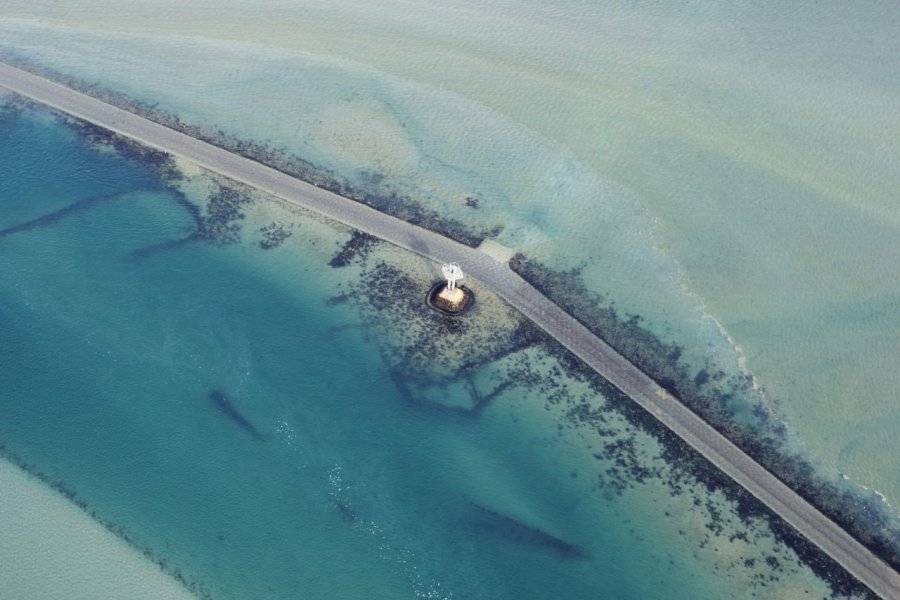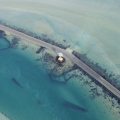THE GOOD
Go there and contact
A road under the sea, steeped in history, one of the sites of national interest and heritage recognized by Unesco.
The Gois is a natural site, protected, unique in Europe! The passage of the Gois is part of the sites of national and patrimonial interest recognized by Unesco! The Gois and its outbuildings (causeway, dykes and refuges) have been listed in the Inventory of Historical Monuments since 1942. But what is the Gois? It is a road under the sea, which dates from the 18th century, a submersible causeway that must be used only at low tide and which connects the island of Noirmoutier to the mainland through the town of Beauvoir-sur-Mer. The slow silting up of the Bay of Bourgneuf created this 4.20 km long ford which was built by man. If the current passage is relatively recent, there are centuries that communications between the island and the mainland are possible. It was probably used as early as the 8th century by a few adventurers during the lowest tides, but history is only certain of a retreat by Norman raiders in 843. Vauban then quotes it in 1689: "A small arm which sometimes dries up at low tide until it can be crossed on foot. ». Its use became common in the 18th century, and it was used during the Vendée wars by General Charette as well as by the Republicans. The first beacons, 18 in number, were installed in 1786. Six beacons called "parrot poles" and three beacons equipped with cages, run along the Gois and welcome travellers who would have been surprised by the rising water. Today, the Goisl looks like it did in the 19th century, except for a few places where the cobblestones have been replaced by asphalt. Remember this: you can cross from 1h30 before to 1h30 after low water. For example, if the low water is at 12:00, you can cross between 10:30 and 13:30. Check the signs just before the Gois. Every year, some inveterate optimists arrive too late, see the sea still uncovered and tell themselves "it will pass". But after the hour it is no longer the hour and it does not pass! The only thing left to do is to spend 6 hours on top of a beacon and lose your car. Rinse your car with fresh water in the days following the passage, salt being the enemy of the bodywork. The Gois has been through many anecdotes. The latest one: in 1999, according to the specialists, it is on the Gois that the victory of the Tour de France was decided, after the fall of a large part of the peloton of which many potential winners of the Grande Boucle were victims. Don't miss the famous event "Les Foulées du Gois".
Did you know? This review was written by our professional authors.
Members' reviews on THE GOOD
The ratings and reviews below reflect the subjective opinions of members and not the opinion of The Little Witty.









Sur la route, on observe tous les ramasseurs de coquillages.
Si vous allez voir le passage quelques heures après, elle sera recouverte de plusieurs metres d'eau et vous aurez du mal à croire que vous êtes passé là il y a quelques heures!